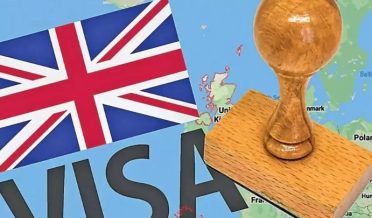Of course, this is not good news for Pakistan that The United Kingdom has added Pakistan to a list of 21 countries it deems to be high-risk due to deficiencies in anti-money laundering (AML) and counter-terrorism financing (CTF) controls.
The list had previously been determined by the European Union, but following the end of the Brexit transition period, the UK has produced its own list initially based on countries on the Financial Action Task Force’s ‘grey list’ or ‘blacklist’ (see full list below).
The change, which has come into effect, means businesses regulated under the UK’s AML regulations are required to carry out enhanced due diligence when entering a business relationship with a person in Pakistan or in relation to “any relevant transaction where either of the parties to the transaction is established” in the country. The UK government says however the impact “will be limited as this forms part of a wider enhanced due diligence framework already required of these businesses.”
In an explanatory note to the updated legislation, the United Kingdom government said: “The principal policy objective behind this legislation is for the department to be able independently to update the list of high-risk third countries in respect of which the regulated sector needs to apply enhanced due diligence in timely manner in order to continue to be in line with international standards on combatting money laundering.”
Pakistan ministers are unhappy about the move. Foreign Office spokesperson Zahid Hafeez Chaudhri said he hoped the “UK would review its regulations in light of facts on the ground and avoid politically motivated and misplaced measures.”
Since 2018, Pakistan has been on FATF’s ‘grey list’ of countries deemed to have strategic AML/CTF deficiencies.
FATF said the country has made “significant progress” and has now met 24 of 27 agreed actions. It has urged the country to complete the three remaining actions, which all relate to CTF, by June of this year. Chaudhri said Pakistan is “close” to fully implementing its improvement plan.
Demonstrate that terror financing investigations and prosecutions target persons and entities acting on behalf or at the direction of the designated persons or entities.
Demonstrate that terror financing prosecutions result in effective, proportionate and dissuasive sanctions. Demonstrate effective implementation of targeted financial sanctions against all 1267 and 1373 designated terrorists, specifically those acting for or on their behalf.
Apart from Pakistan, other countries are included in high-risk countries are Albania, Barbados, Botswana, Burkina Faso, Cambodia, Cayman Islands, Democratic People’s Republic of Korea, Ghana, Iran, Jamaica, Mauritius, Morocco, Myanmar, Nicaragua, Panama, Senegal, Syria, Uganda, Yemen, Zimbabwe.
Pakistan has responded immediately in this regard and Foreign Office (FO) spokesperson Zahid Hafeez Chaudhry said, that the United Kingdom’s decision to include Pakistan in the list of Money Laundering and Terrorist Financing High-Risk Countries was not based on facts. In a statement issued from Islamabad, Chaudhry expressed the hope that the “UK would review its regulations in light of facts on ground and avoid politically motivated and misplaced measures.”
A day earlier, it had emerged that the UK had added Pakistan to the list of 21 countries that were part of Schedule 3ZA (High Risk Countries) under its Money Laundering and Terrorist Financing (Amendment) (High-Risk Countries) Regulations 2021.
The statement added that over the last two years, Pakistan has taken “unprecedented measures through a series of legislative, institutional and administrative actions in the domain of anti-money laundering and countering financing of terrorism. “These actions, which have also been reported to Financial Action Task Force (FATF) and shared with the European Union have been widely acknowledged by the international community, it said, adding that the near completion of the FATF action plan through 24 out of 27 Action Items “is a testament to Pakistan’s commitment and tangible actions in AML/CFT domain.”
Pakistan has been on the FATF’s grey list for deficiencies in its counter-terror financing and anti-money laundering regimes since June 2018. During its last plenary session in February earlier this year, the FATF had observed that while Islamabad had made “significant progress”, there remained some “serious deficiencies” in mechanisms to plug terrorism financing. At the same time, FATF President Dr Marcus Pleyer had said that 24 of the 27 points agreed upon by Pakistan as part of its action plan had been complied with.
Editor
 243
243






